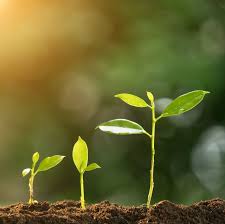The Retired Rev Bishop Dr. Edward Muhima, former Bishop of Kigezi Diorcese, has had a Datsun car for three decades which he bought back in 1980, shortly after returning from his studies in the US. It is neither a powerful car nor fancy car to leave mouths gasping. But it has one of the lowest fuel consumption. The one fact that has made all this possible is that the good Bishop takes good care of his car. He services it regularly and has a good mechanic who knows the car like the back of his hand.
Today one often hears of many sharing how one can get rich while forgetting an important aspect critical to the attainment of wealth: stewardship. By being a good steward of what God has entrusted him, Bishop Muhima, has built wealth through savings on his transport expenditure. So often ignored is that the road to wealth starts with mastering the principles of stewardship.
To be a good steward one must first take care of one’s body. The Bible says, “So Go created man in his own image, in the image of God he created him: male and female he created them” (Genesis 1:27). If we fail to take care of our bodies due to an undisciplined lifestyle we are not honoring God. The noted Christian apologetic writer, C S Lewis, once noted, “Every faculty you have, your power of thinking or of moving your limbs from moment to moment, is given you by God.” Taking good care of our bodies by engaging in productive pursuits, eating responsibly, exercising and having proper rest is being good steward of what God has entrusted us.
How we treat the Earth also reveals stewardship. Today we hear so often of the dangers brought on by climate change, much of which is a result of our careless treatment of the Earth. For example, widespread deforestation, without attempts at reforestation, of course damages the natural cycle as God intended it. Dumping industrial waste in wetlands and encroaching on water bodies pollutes streams of water that ultimately endangers human habitation. Yet in creating “heaven and earth” God entrusted us to take good care of the Earth (Genesis 1).
Taking good care of our finances is another sign of stewardship. Actually whatever finances we have do not belong to us. The Bible says, “But remember the Lord your God, for it is he who gives you the ability to produce wealth” (Deuteronomy 8:18). The parable of Talents (Luke 19:11-26) shows that God does not expect us to sit on the finances he has given us but to use them wisely. The servant who invested wisely what his master had left in his care was promised more: “Because you have been trustworthy in a small matter, take charge of ten cities” (Luke 19:17).
A good example of using wisely the resources God has given us is revealed in the condition of Africa. The continent of Africa is one of the most richly endowed on the planet Earth. Dr Peter Asiimwe, in his book, The African Dream, notes that: “Africa is the wealthiest continent on earth in terms of mineral and natural wealth…” But Africa remains one of the poorest with most of the minerals either un tapped or simply exploited for the benefit of a few. Conversely, Japan, an island poor in natural resources has exploited her human resource to the maximum to become one of the richest economies of the world. To redeem Africa starts with being good stewards of the resources God has entrusted her. As the Bible notes in the Parable of Talents the one who used his talents well was even entrusted with more, “Well done, good and faithful servant! You have been faithful with a few things; I will put you in charge of many things” (Mathew 25:23).







